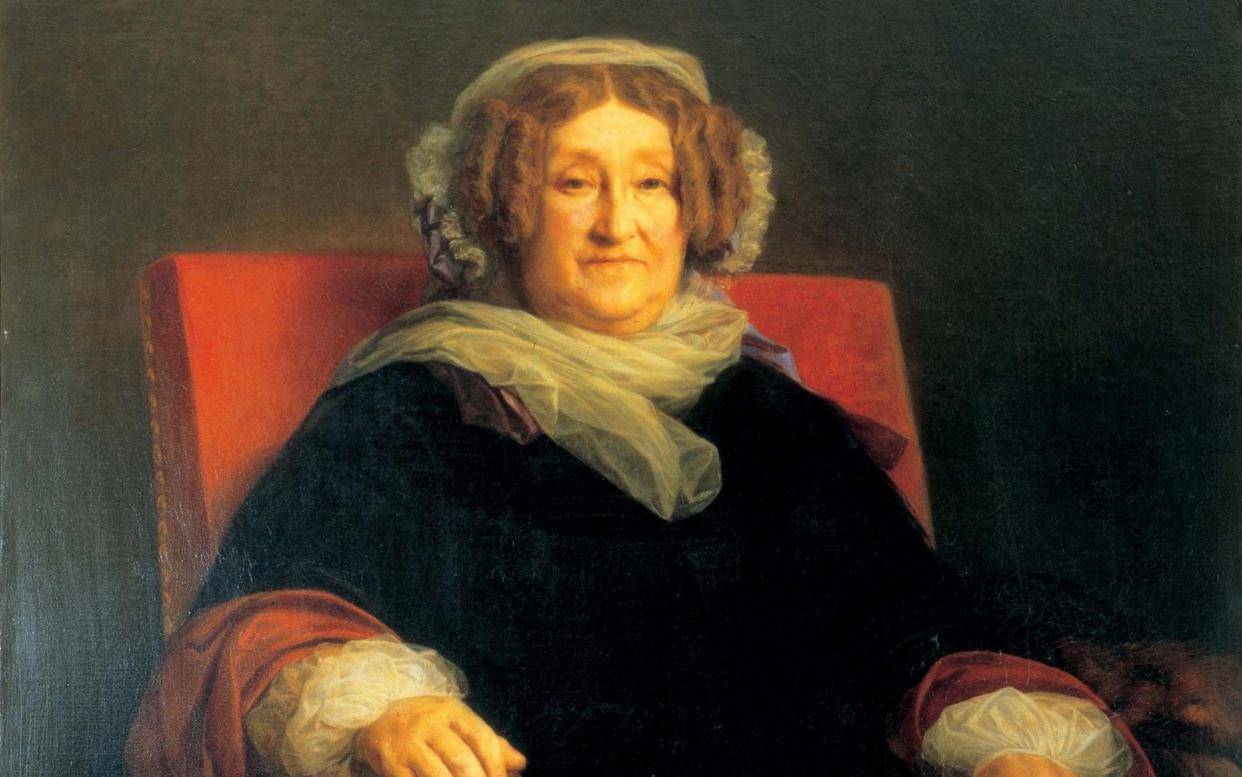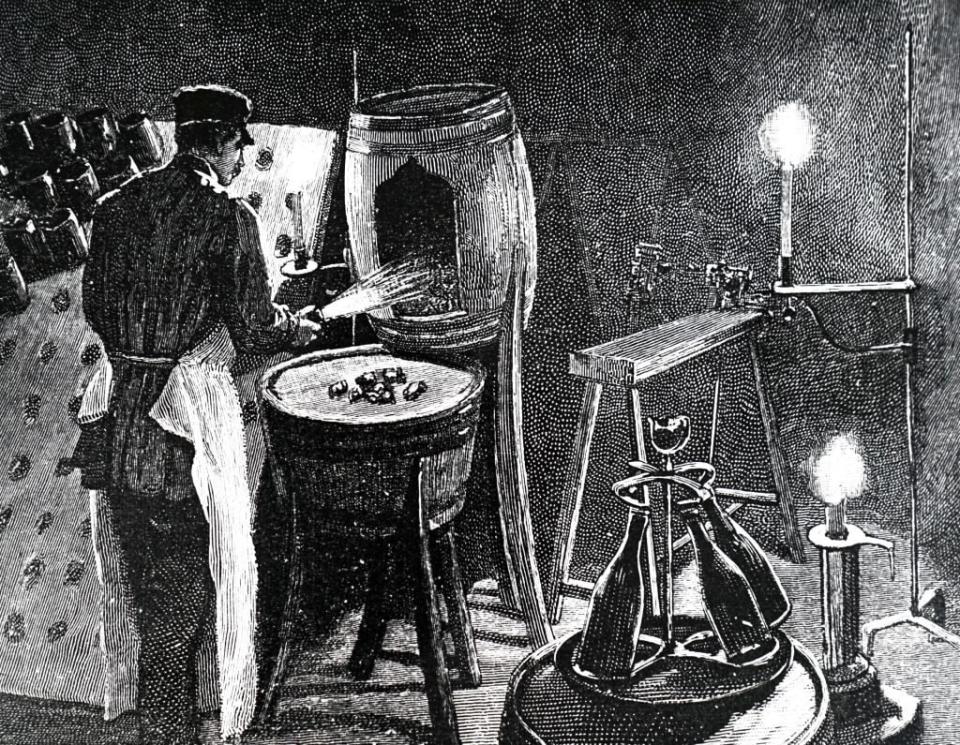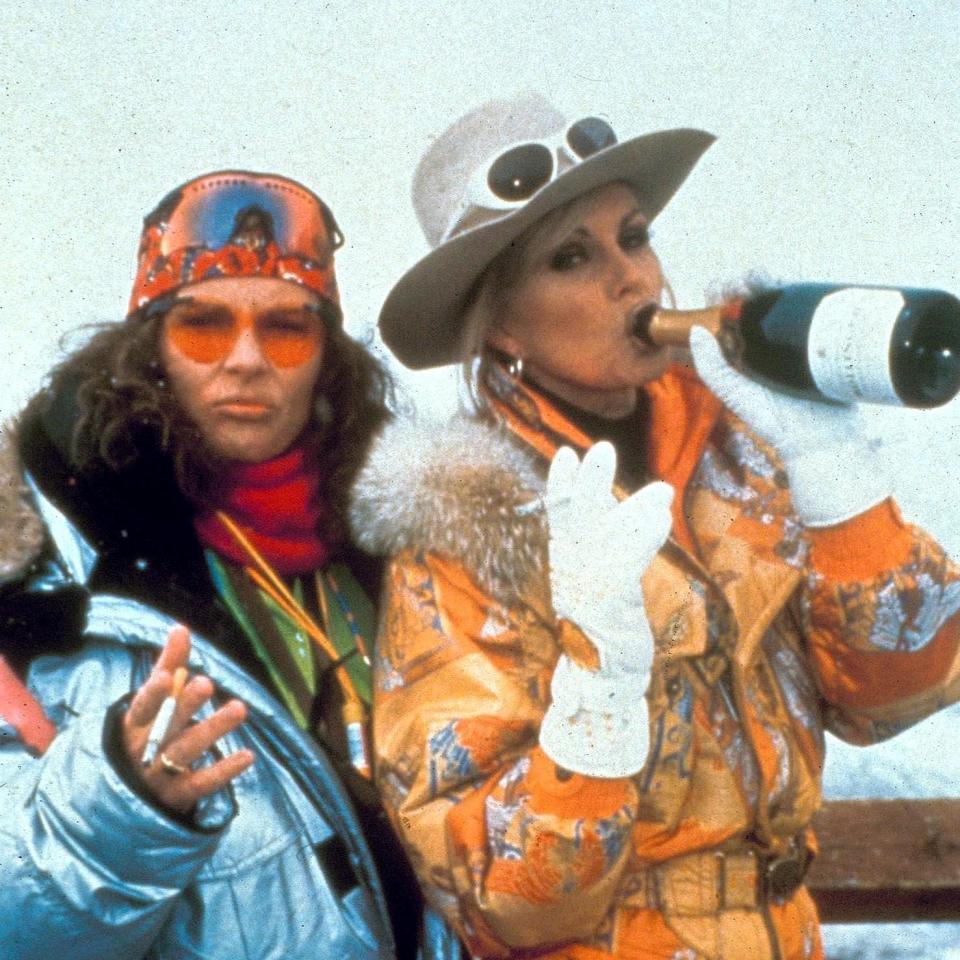The extraordinary women behind the world's greatest wine

Here’s the plan. You go out today to buy as much champagne as you can reasonably afford, and you begin drinking it over this festive long weekend. You should include a glass with breakfast, for you won’t have a hangover. Despite medical claims, champagne rarely gives hangovers. At least, I’ve never had one, and I’ve pushed champagne experimentation to the outer limits.
Then – this is the important bit – you carry on drinking through January. There are four reasons for this. The first is to thumb one’s nose at the very idea of Dry January. In normal times, January is as miserable as hell – doubtless more miserable yet in 2021 – and so no month for abstinence. It will require a maximum of added sparkle.
Secondly, you’ll surely be drinking brut champagne, Britain’s favourite. In champagne terms, “brut” means “dry” (as opposed to the sweeter demi-sec or doux). Thus, to the question: “You doing dry January?” you might justifiably reply: “Certainly – uncork it.”
Thirdly, champagne, and especially its smaller producers, need all the help they can get. Final statistics for 2020 aren’t available but, anecdotally, business has been grim. As one Marne valley producer told me: “We usually sell 10,000 bottles a year though our vineyard shop. This year the figure is nearer 200.”
And fourthly, most significantly… well, put it this way: ours is the era of the woman. This is a very good thing. In this regard, champagne has long been ahead of the game. I may be wrong but I’ve a feeling that women have taken more room at the top of the champagne business (2019 turnover: £4.35 billion) than in most other comparable industries. And starting a lot earlier, too. Regular drinking of champagne – ie, through January and onwards – is, therefore, doing no harm to gender equality, and we must all say “Aye” to that.
Contemporary champagne women will tell you – have told me – that there’s still much room to make up but there’s no doubting that their foremothers have played some startling roles. Right at the start of the 19th century, the extraordinary Veuve Clicquot was France’s (the world’s?) first bona fide international businesswoman. She’d married into the Clicquot champagne family only for her husband to croak when she was 27. Back in 1805, the status of widow (“veuve”) was the sole means by which a woman could head a company, she being considered the “legal extension” of the dead husband. Otherwise, a woman couldn’t even open a bank account.

Thus, the Veuve took over the Clicquot champagne business, steering it through the toughest times – Napoleonic wars, naval blockades – via ingenuity, audacity and shamelessness. In 1814, when the Sixth Coalition first beat Napoleon, and before anyone else caught on, she shipped 10,000 bottles to St Petersburg, that the Russian court might celebrate its victory over the French emperor with French champagne. (It was as if the Germans had sent us schnapps in 1945.) Further shipments followed, the Tsar’s people appreciating what to us would have appeared a super-sweet brew. Pushkin was a fan. Gogol and Chekhov too.
La Veuve – as Clicquot champagne became known – also supplied the Congress of Vienna which, alongside post-Napoleon peace talks, turned into a months-long international knees-up. Thus champagne confirmed its standing as the drink of higher society. Along the way, Veuve Clicquot inaugurated the practice of champagne vintages (the first in 1810), improved champagne-making equipment, and established a proper sales force. Though she herself looked more like Queen Victoria’s more thunderous maiden aunt than the lissom women in the champagne ads, she effectively invented champagne marketing. And it worked. By her death in 1866, she had boosted sales by 4500%, to 750,000 bottles a year.

No surprise, then, that the brand – presently owned by luxury giant LVMH – sponsors the Bold Woman Award for female business leaders. UK laureate in 2020 was Anne Pitcher, group MD at Selfridges.
Madame Clicquot was but the first of several notable champagne widows. In 1858, at the age of 39, Jeanne-Alexandrine Pommery was left with two young children and a champagne house on her hands. Tough luck for the late Mr Pommery but a stroke of fortune for the business which, under Madame’s stewardship, saw sales rise from 50,000 to two million bottles a year. She recognised that the teeth-rottingly sweet champers favoured by Russians and similar didn’t suit everyone. She pushed for dryer, tauter, “brut” wines more acceptable to, for instance, British tastes. Bingo – and Britons still drink more champagne, by volume, than any other non-French nation (though the US market pays more).
Madame Pommery also built gigantic new premises outside Reims. They were apparently inspired by British castles and colleges, for Madame was an anglophile. They are indeed, imposing and monumentally Tudor-ish. They are also mainly blue, which is not a colour I immediately associate with British castles and colleges. But I’ve been wrong before. No matter. If you’re in the vicinity, it’s a terrific visit – and includes part of the 11-mile network of underground vaulted galleries fashioned, at Madame’s behest, from old Roman quarry workings.

Third of this triumvirate of widows is Elisabeth Law de Lauriston-Boubers – known more familiarly, thank heavens, as “Lily”. Issue of a family of Scottish origin, she married Jacques Bollinger in 1923, to be widowed 18 years later in 1941. She was 42 and now head of the Bollinger house – based in the small town of Aÿ – as it ploughed through wartime shortages and restrictions. Ingenuity and perfectionism pulled her through as, so it is said, did her habit of riding the vineyards on a bicycle.
Thus, in the fullness of time, did Bollinger become an official champagne supplier to the British Crown, to James Bond (whose first taste of Bollinger came in Fleming’s fourth book, Diamonds Are Forever) and, more recently, to Absolutely Fabulous. We shall never know how far Lily Bollinger would have approved of Edina and Patsy’s Bolly-and-Stoli, but “quite far” would be my guess. Champagne people, women and men, have long been broadminded in the matter of positive PR material.

Naturally, it is said that the three widows, and others like them, were thrust to prominence by circumstances and that there’s still much progress to be made in a macho world. Of course. But, as Alice Voirin of Champagne Voirin-Jumel in Cramant says, the family nature of so many champagne houses, plus the relative elegance of the product, has ever ensured a greater involvement of women than, say, in the construction industry. Beneath the champers’ sheen is the hard work in fields and cellars which lends the sheen legitimacy. It’s the task of mum and dad, brother and sister. Women have been quite as vital as men.
Should doubts about women’s champagne importance nevertheless linger, two groups of champagne women producers exist to banish them. The seven Fa’bulleuses (geddit? “fabuleuse” = fabulous; “bulles” = bubbles) are at fabulleusesdechampagne.com. La Transmission – whose nine members include Maggie Henriquez, boss of Krug and Vitalie Taittinger, president of the family-owned house – is at la-transmission-champagne.com.
And should doubts also remain about the advisability of champagne through January – and, indeed the whole of 2021 – let us return to Madame Lily Bollinger and her most famous quote: “I drink (champagne) when I’m happy and when I’m sad. I drink it sometimes when I’m alone and, when in company, consider it obligatory. Other than that, I never touch it. Unless I’m thirsty.” You’re going to argue with an authority like that?


